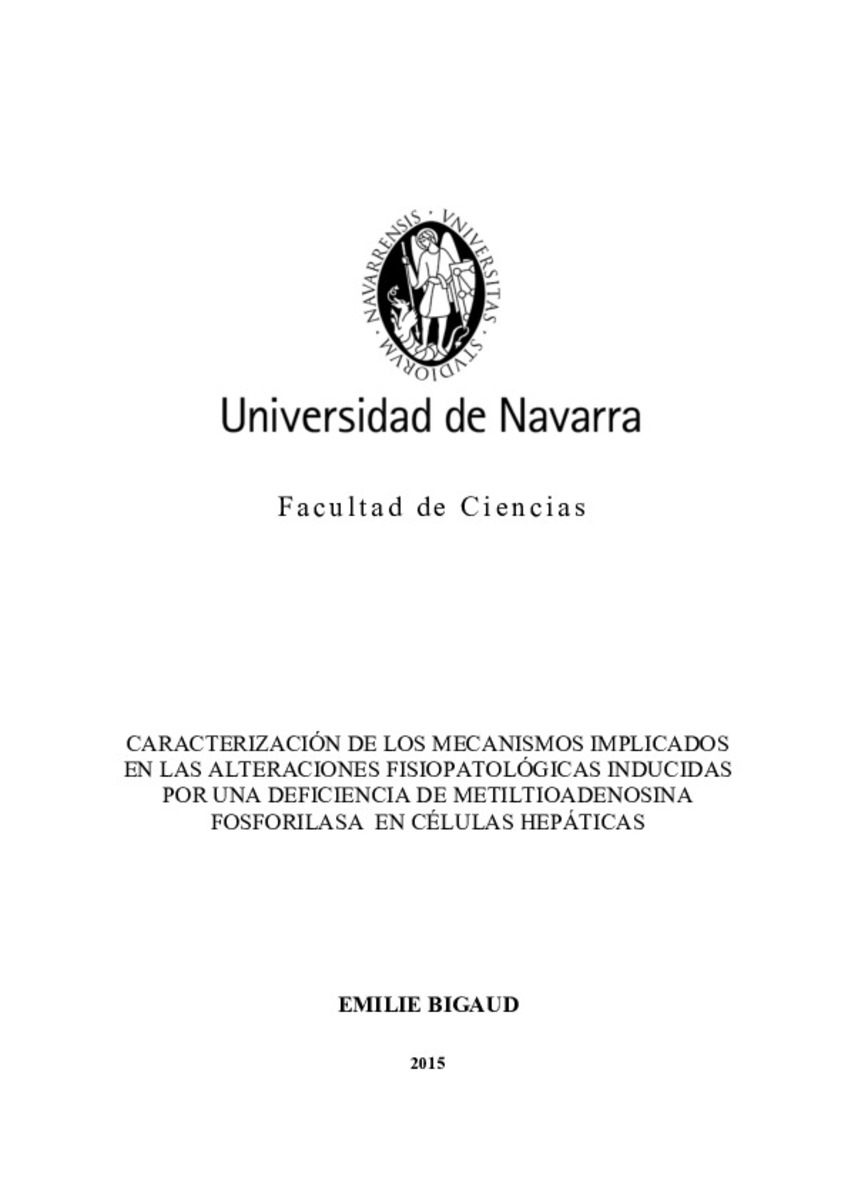Caracterización de los mecanismos implicados en las alteraciones fisiopatológicas inducidas por una deficiencia de metiltioadenosina fosforilasa en células hepáticas
Palabras clave :
Metabolismo intermediario
Proteínas
Peptidos
Biología celular
Materias Investigacion::Ciencias de la vida::Biología
Fecha de publicación :
2015
Fecha de la defensa:
12-mar-2015
Editorial :
Servicio de Publicaciones de la Universidad de Navarra
Cita:
BIGAUD, Emilie. “Caracterización de los mecanismos implicados en las alteraciones fisiopatológicas inducidas por una deficiencia de metiltioadenosina fosforilasa en células hepáticas”. Corrales, Fernando José (dir). Tesis doctoral. Universidad de Navarra, Pamplona, 2015
Aparece en las colecciones:
Estadísticas e impacto
0 citas en

0 citas en

Los ítems de Dadun están protegidos por copyright, con todos los derechos reservados, a menos que se indique lo contrario.







